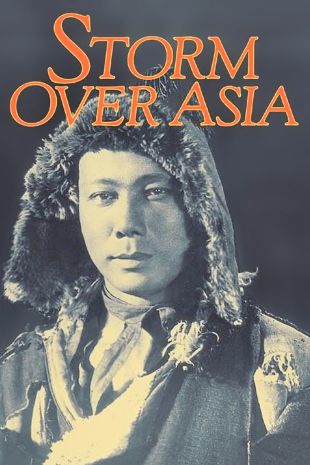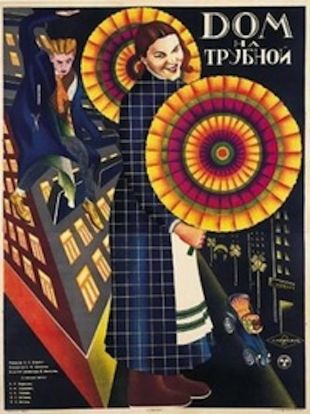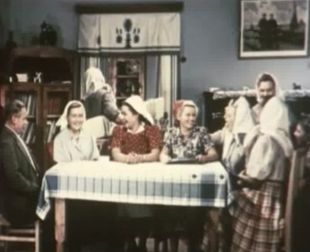During his heyday in the late '20s and early '30s, Russian actor and filmmaker Boris Barnet was hailed a master of tragicomic satire. Ironically, it would be his use of satire that would put a permanent damper on what promised to be a long, brilliant career.
Of English heritage, Barnet was still in his teens when he volunteered to serve as a medic for the Red Army during the Russian Civil War. After completing his military service, Barnet attended the Central Military School of Physical Education of Workers. Following a stint as a professional boxer, Barnet enrolled at VGIK and joined Lev Kuleshov's experimental workshop. Following graduation, Barnet co-directed Miss Mend with Fyodor Otsep in 1926. Barnet made his first solo film the following year. Devushka s Korobkoy starred Anna Sten and gently satirized the government's recently enacted New Economic Policy which allowed a limited amount of free enterprise to boost the Russian economy. Like his subsequent successes, the story offered a subtle blending of tragedy and comedy, much in the style popularized by Charlie Chaplin. Barnet's sophomore effort, a historical epic to commemorate the tenth anniversary of the October Revolution, was assigned to him by the studio and was not nearly as successful as his first. Barnet's disinterest in the subject showed and the film failed at the box office. However, he returned to form with his next effort, Dom na Trubnoi/The House on Trubnaya Square (1928). Audiences loved Barnet's comic take on the complicated relationships among Moscow's dwindling bourgeois society, but some critics warned that such satires could be potentially troublesome for unwary filmmakers. It was advice that Barnet did not heed when he made the sad yet funny Okraina (1933), the story of how the Russian Revolution divided a small Russian community. Though well made, the story was ill-timed and the film was heavily criticized for presenting the Russian people in a negative light. While Barnet never made another real satire, the criticism had a cumulative effect on his career and though he received the title of Honored Artist in 1935, he was never able to regain the popularity and approval he had prior to Okraina. He still continued to make films through the early '60s and a few of them, including U Samogo Sinego Morya/The Bluest of Seas (1935) (one of the Soviet Union's first color films), Podvig Razvedchika/Secret Mission (1947), and Annushka (1959), received good reviews. In 1965, Barnet was working on a film in in Riga, Latvia, when he committed suicide.


